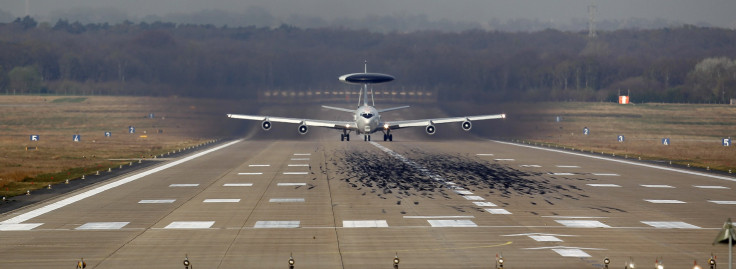Russia Could Invade Ukraine 'Any Day Now,' NATO Officials Warn

NATO intelligence officials operating in Ukraine warn that Russia could invade its neighbor “any day now” as Moscow moves highly equipped forces near the republic’s eastern border, the global defense publication IHS Jane's reported Wednesday.
“The assets being placed on the border are the type that normally do not leave their bases unless you are planning a real military operation," an official told Jane’s, one of the most respected names in military affairs.
NATO security officials point to the presence of the 4th Guards Kantemirovskaya Tank Division, one of the most advanced units in the Russian armed forces, as well as a buildup of squadrons of Sukhoi Su-25 ground attack jets in southern Russia. In addition, there are large stockpiles of pre-positioned air-to-ground munitions.
Also Wednesday, NATO's supreme allied commander in Europe, U.S. Air Force Gen. Philip Breedlove, expressed concern over Russia’s estimated 40,000 troops poised near the Ukrainian frontier.
"We think it [Russia’s military] is ready to go and we think it could accomplish its objectives in between three and five days if directed to make the actions," Breedlove said.
The Pentagon confirmed on Tuesday that Russia has yet to partially withdraw forces from Ukraine’s border region, a promise made by President Vladimir Putin to German Chancellor Angela Merkel on Monday.
Sitting in the middle of the crisis zone, NATO members in Eastern Europe continue to worry about Russia’s actions and intentions.
Bulgaria’s defense minister announced Tuesday that the country's air force has been put on high alert at least 30 times in two months in response to Russian flights near its airspace on the Black Sea.
Bulgaria, a former Soviet satellite state, isn't the only NATO ally worried over actions that may come after Russia’s takeover of Ukraine’s autonomous region of Crimea last month. Latvia, Lithuania and Estonia, the three Baltic NATO members, also expressed concern, especially as Russia's pretext for occupying Crimea was protecting the ethnic Russian majority there. Latvia and Estonia have sizable ethnic Russian populations.
As tensions continued to escalate, Breedlove, who was supposed to speak to Congress in Washington earlier this week, was sent back to Europe by Defense Secretary Chuck Hagel.
"We are going to have to look at how our alliance now is prepared for a different paradigm, a different rule set ... We will need to rethink our force posture, our force positioning, our force provisioning, readiness," Breedlove said in light of the new threats facing the West.
© Copyright IBTimes 2025. All rights reserved.






















